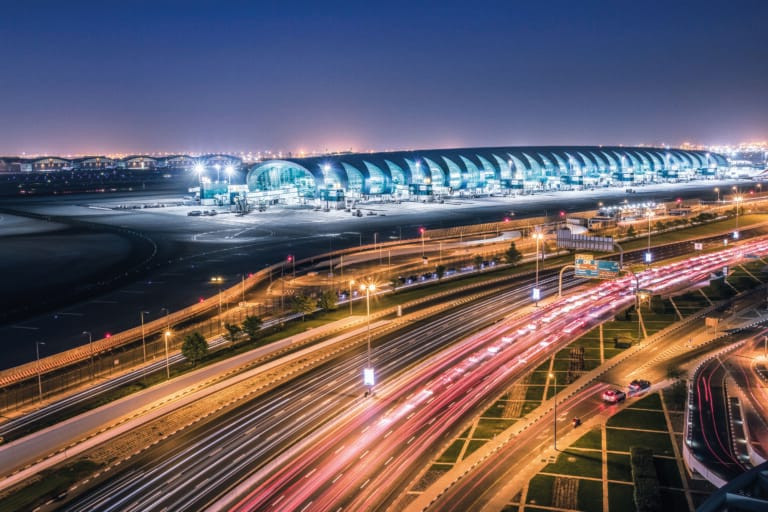Dubai’s rapid rise as a logistics powerhouse is no accident. It is the result of strategic planning, innovation, and pivotal partnerships. A concrete signal of growth in the region is Emirates SkyCargo’s commitment to fleet expansion and network growth over the next several years.
“Next financial year, or the next two financial years, we’re expecting delivery of multiple aircraft, and we aim to operate a fleet of 21 dedicated freighters by December 2026,” Badr Abbas, Emirates SkyCargo’s Divisional Senior Vice President, stated. “So, 15 more freighters are expected across orders and conversions. This will double our capacity, expand destinations, and cement our leadership in air logistics, which again will help facilitate global trade.”
That expansion isn’t merely about adding planes—it’s about building an expansive, interconnected infrastructure. “We aim to add 20 new destinations to our global freighter network. Copenhagen, as you know, was the first, and Narita was also announced yesterday, which will start next month.”
Currently operating in 38 freighter destinations globally, Emirates SkyCargo is merging freighter-only and wide-body passenger operations. “We plan to offer more flexibility by integrating our dedicated freighters with our extensive wide-body fleet, comprising Boeing 777s, Boeing 777 freighters, Boeing 747 freighters, A350s, and A380s… unmatched flexibility to move goods quickly and efficiently across the globe.”
Vision for a multimodal future
Supporting this ambitious network growth is one of Dubai’s most significant infrastructure projects: the expansion of Al Maktoum International Airport.
“Al Maktoum International Airport expansion for Dubai is also a long-term vision… to the world’s largest cargo hub that will be able to process 12 million tonnes of cargo annually from the current capacity we have,” Abbas noted. “So, that will grow and position Emirates SkyCargo at the heart of global trade.”
This project is part of a broader master plan to make Dubai the world’s leading multimodal logistics hub. “It will also support the growth of the nearby logistics district, which will be the base for global cargo and shipping companies,” he added.
Far from merely responding to demand, Abbas made clear that Emirates is taking a proactive role in shaping the future. “We’re not just meeting demand here. We’re shaping the future of air logistics and staying ahead of the competition.”
Collaboration at the core
A key differentiator lies in Emirates SkyCargo’s ecosystem—a robust, collaborative structure between government bodies, airports, and private stakeholders.
“Dubai has a strategic location… two-thirds of the world’s population is reachable within an eight-hour flight,” Abbas emphasised. “The city also combines geographic advantage with world-class infrastructure, progressive policies, strong international partnerships, and diplomatic relations.”
This synergy is institutionalised through coordinated strategic initiatives. “The Dubai Economic Agenda D33 also aims to double foreign trade and add 400 cities to the foreign trade map. Emirates SkyCargo is well positioned to capitalise on this growing multimodal transportation opportunity.”
It is this shared ambition that drives project execution across Emirates’ infrastructure. “We are working closely with the government… to build the airport of the future. So, all the requirements of Emirates SkyCargo in order to build that airport, you know, it is done as a team, not isolated.”
That collective mindset carries through to its partners globally. “We have many handling partners, such as dnata… who are supporting us with the facilities and the infrastructure in many markets we choose. They need to have sufficient space, and also they should be able to support us when we grow in those markets.”
Innovation, sustainability and digitisation
Beyond physical infrastructure and aircraft acquisitions, Emirates SkyCargo is prioritising innovation in digitisation and environmental stewardship.
“Sustainability remains at the heart of our mission,” Abbas stressed. “If you take our fuel-efficient aircraft, innovative operations, reducing our carbon footprint… we have also other initiatives like the Move to Minus 15 Degrees global coalition. These all redefine industry standards.”
Their environmental agenda includes more than just aviation. “We also lead the fight against illegal wildlife trafficking… and recently signed a contract with our trucking provider to move to hydrogen trucks.”
Digitisation, too, plays a transformative role. “Digital innovation is transforming our industry… our website and our presence on global platforms are putting control and convenience directly in the hands of our customers,” said Abbas.
The results speak for themselves. “Over 65 percent of our bookings are now digital. That is boosting productivity, reducing manual workloads, and allowing our teams to focus on complex shipments like Emirates Valuables and Pets.”
Looking forward, Abbas sees the future in emerging technologies. “AI, IoT, and blockchain are the future of logistics, and we are embracing them to revolutionise our operations—from real-time tracking to predictive analytics and enhanced transparency.”




